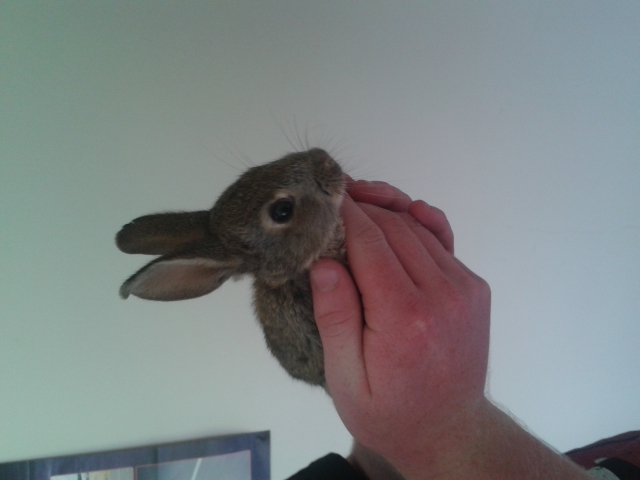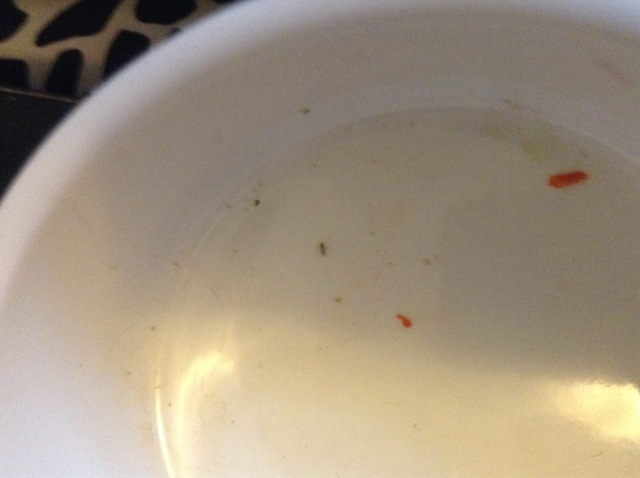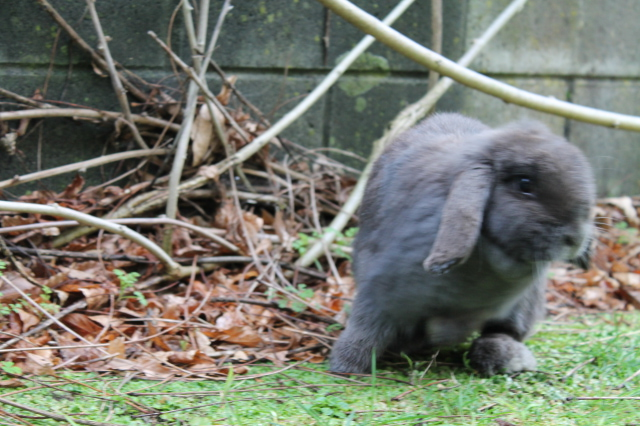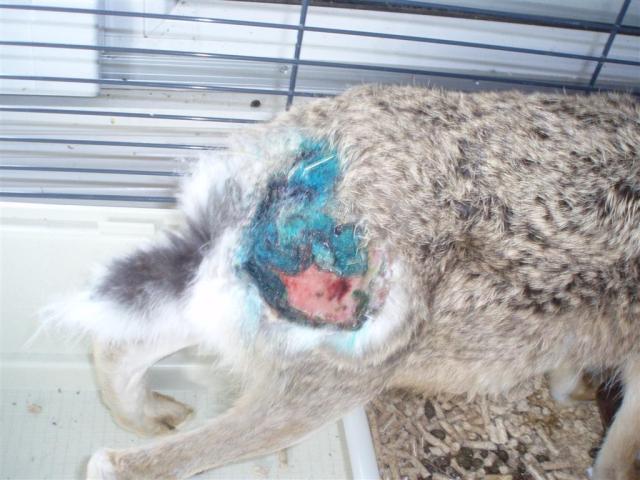QuestionI took our 4 year old rabbit to the vet because we thought he had teeth problems. We found out that he was diabetic. The vet shaved his neck and then held his head back in order to take blood. While he was taking blood he went into shock. The vet said that rabbits can get stressed and go into shock and die. We thought he was coming around but in the end it was decided to put him down. The vet was not sure how to treat the rabbit. He had a reading of 14.18.
AnswerHi Ines,
I am so sorry for the loss of your bunny. This shows the importance of having a rabbit savvy vet and the dangers of one that is not knowledgable with rabbits. Treatments used for dogs and cats are many times harmful to rabbits. I am not a vet....but there is no way I would allow anyone to even attempt to draw blood from a rabbit's neck unless the rabbit was already sedated by appropriate anesthesia. I don't think I would be a very pleasant person to be around at that time. We always draw blood from the leg. Just the stress of having his head held back in that position could very possibly cause severe injury to the spine. The spine in a rabbit is extremely delicate.
I have been doing rabbits for many years and I have yet to see one that is diabetic. I have seen a story circulated on the internet alleging high glucose levels in a rabbit, but nothing clinically proven. I know some research facilities have induced diabetes in lab animals using drugs.
I have no idea what that reading is. If you have a lab report, I would be happy to look it over. If that is a blood glucose reading, that would be a hypoglycemic reading. I have seen rabbits become hypoglycemic or in a condition similar to it. I have heard of many breeders and others suggesting Karo syrup....how horrible. A rabbit can't digest sugar so that would be a huge no-no. In every case of hypoglycemia...or the resemblance of same...in a rabbit can always be traced back to a nutritional issue.
As far as possible diabetes, it is rare but not unheard of according to some lab reports I use in my work. To properly gauge blood glucose levels, fasting (removing food for an extended period of time) is required. Since it is dangerous to fast rabbits due to their very specialized digestive system, checking glucose directly from the blood will show what most vets would consider very high levels. But since this isn't a human, dog or cat...those rules don't apply. Glucose levels are further elevated due to stress. Being sick, car trips and the unusual surroundings at the clinic can raise glucose levels. I would suspect that the symptoms of possibe diabetes in a rabbit would be similar to other species. As a side note, we do have a degu in our rescue (we rescue "special needs" animals) that does have comfirmed diabetes so I do have some experience with this. The symptoms would most likely include increased thirst and urination and on-going bacteria infections. But these also mimic other conditions that a rabbit can present. We usually check blood sugar as part of a urinalysis by checking the kidney values in a CBC and glucose levels in expressed urine. Again, I am not a vet, but I suspect in this case the alleged high glucose levels was not reached by accurate and appropriate testing.
I would be very interested in exactly what symptoms your rabbit was presenting...and be as specific as possible. I would also need to know exactly what he was being fed....everything including brand names, amounts and frequency. I would also really be interested in why this doctor chose this route of treatment for your rabbit. Since I am not a vet, I view this as a learning opportunity for me personally.
In your vet's defense, most vet schools offer very little in "hands on" training for "exotics" or avian (birds). I know because that is why I started doing work with very sick animals. I also live near a major vet school and my animals are used to give hands on training to their students using real house rabbits with real world conditions. Many "old school" vets were taught that rabbits should be treated like cats....so wrong. Rabbits (along with their relatives chinchillas and degus) are in a world all to themselves when it comes to medical treatments. We are just beginning to get some really good people that specialize in doing exotics. I have the utmost respect for vets. I am called on by vets quite a bit for help both with domestic rabbits and especially with wildlife. Many times, they work as my "tech" and I have the opportunity to work shoulder to shoulder with them. They have a very tough job. So many species, so many different sets of rules. We still have a ways to go to get enough exotic vets out in the real world.
And if you would, please send me more info on your rabbit...especially the info about the food and exactly what was going on with him.
Randy

 Wild Rabbit Kitten
Question
Rabbit Kitten
This morning we woke up t
Wild Rabbit Kitten
Question
Rabbit Kitten
This morning we woke up t
 Vet couldnt find any mites or fleas, but Im being bit.
Question
little grey bug 2nd pic of bug
H
Vet couldnt find any mites or fleas, but Im being bit.
Question
little grey bug 2nd pic of bug
H
 I hit/spank my rabbit
QuestionQUESTION: Hey Dr. Krempels,
I have this habit o
I hit/spank my rabbit
QuestionQUESTION: Hey Dr. Krempels,
I have this habit o
 My Rabbit might be pregnant?
Question
Allie
Is my rabbit Allie pregnant? She
My Rabbit might be pregnant?
Question
Allie
Is my rabbit Allie pregnant? She
 European brown hare syndom virus - Rabbit and hare shelter from Croatia
QuestionInjury
QUESTION: Hello Dana, please answ
European brown hare syndom virus - Rabbit and hare shelter from Croatia
QuestionInjury
QUESTION: Hello Dana, please answ